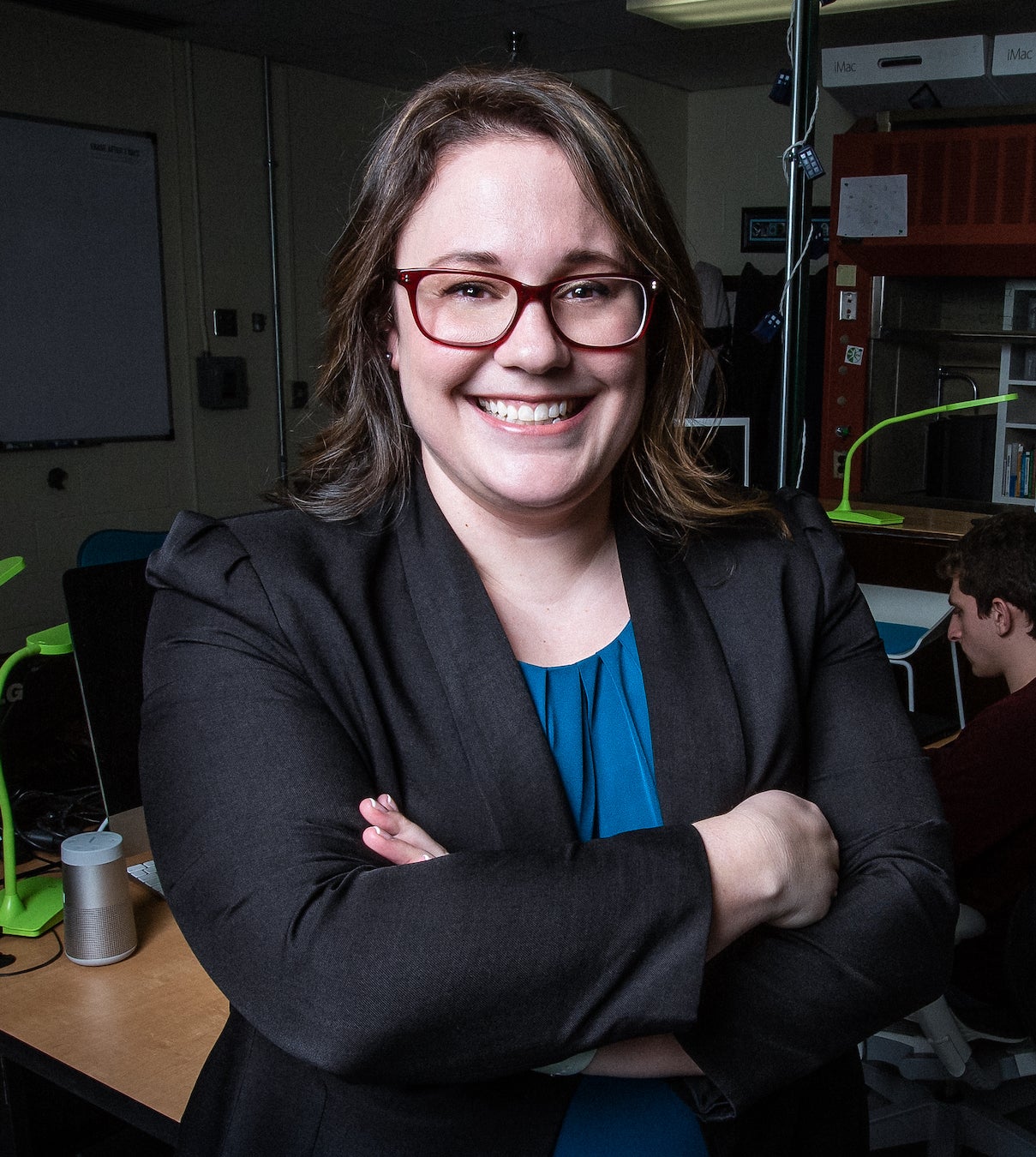In 2016, 137.5 million Americans voted in the presidential election. For some, casting their ballot wasn’t easy. Six years later, voters are the most polarized they’ve been in decades.
How do we sustain a republic? Restore faith in the election process, says Gretchen Macht. Macht is an assistant professor of mechanical, industrial and systems engineering at the University of Rhode Island and the founding director of URI VOTES.
Established in 2017 with the aim of using data and technological advances to help shorten voter wait times and improve voting procedures, URI VOTES takes an engineer’s approach to election science. Macht and her team of graduate and undergraduate students study voting through various lenses: voting in person versus voting by mail, how the accessibility of polling places affects persons with disabilities, strategies to avoid COVID infection in polling places, election law, allocating election resources, and the arrangement of polling place facilities, among them.
Simply put, URI VOTES studies how a system – an election – functions and how to improve it.
According to Macht, “People will believe the outcome of an election under two conditions: one, their person won; two, their voting experience was easy.”
She notes some of the issues in the past presidential election were related to the length of time it took election administrators to count mail ballots. “When the counts didn’t meet voters’ expectations, they thought things were wrong with the election.”
Recently named an election expert by the Board of MIT’s Elections Lab, Macht says, “My elections work is a calling. It is inspiring to watch democracy at work, and now it’s become a question of how can I continue to make this happen? How can I continue to help?”
To schedule an interview, contact:
Dawn Bergantino, URI Communications, at 401.874.4147 or dawn_bergantino@uri.edu.

